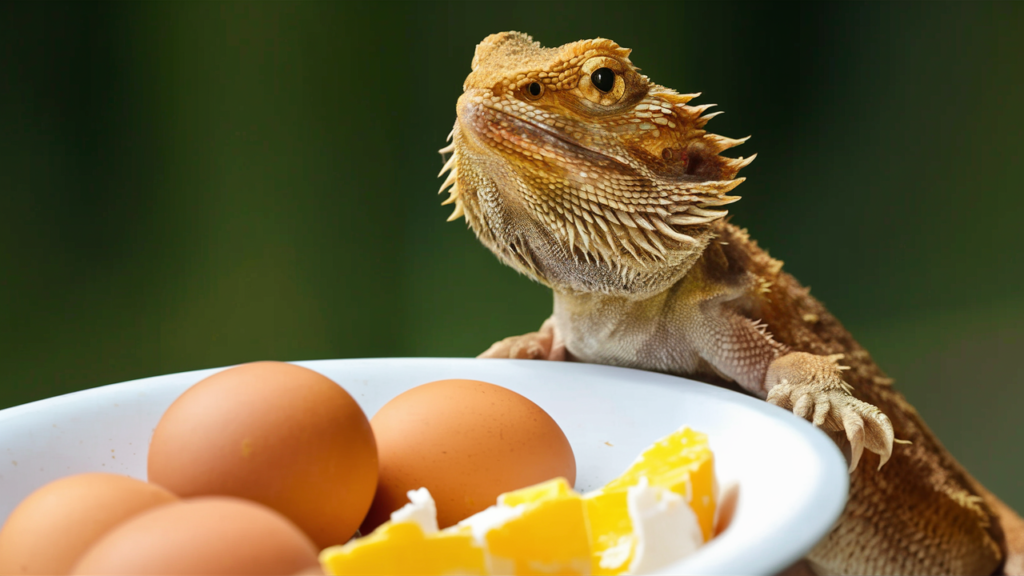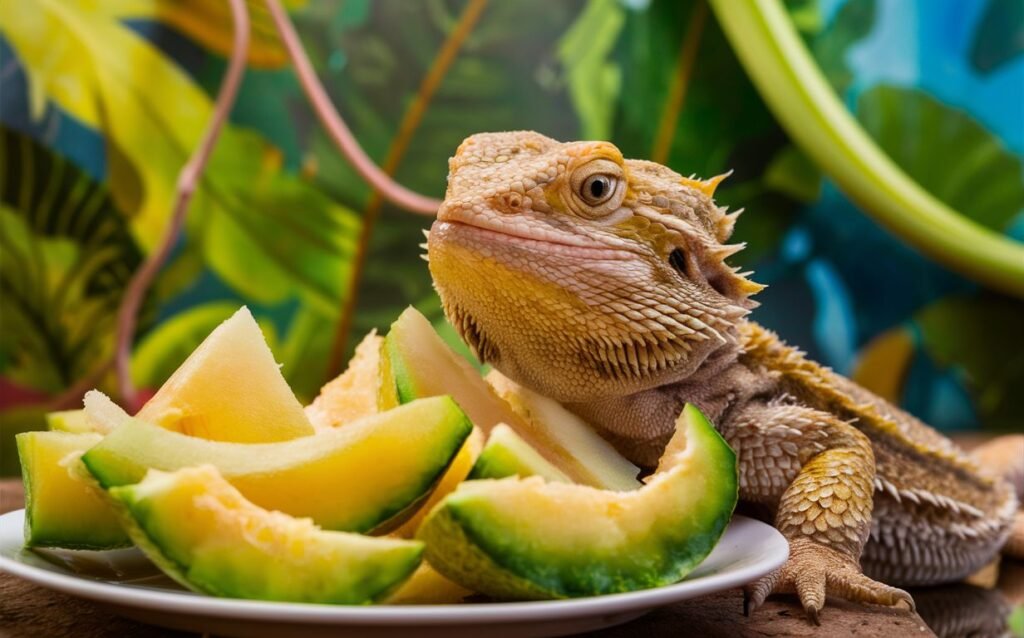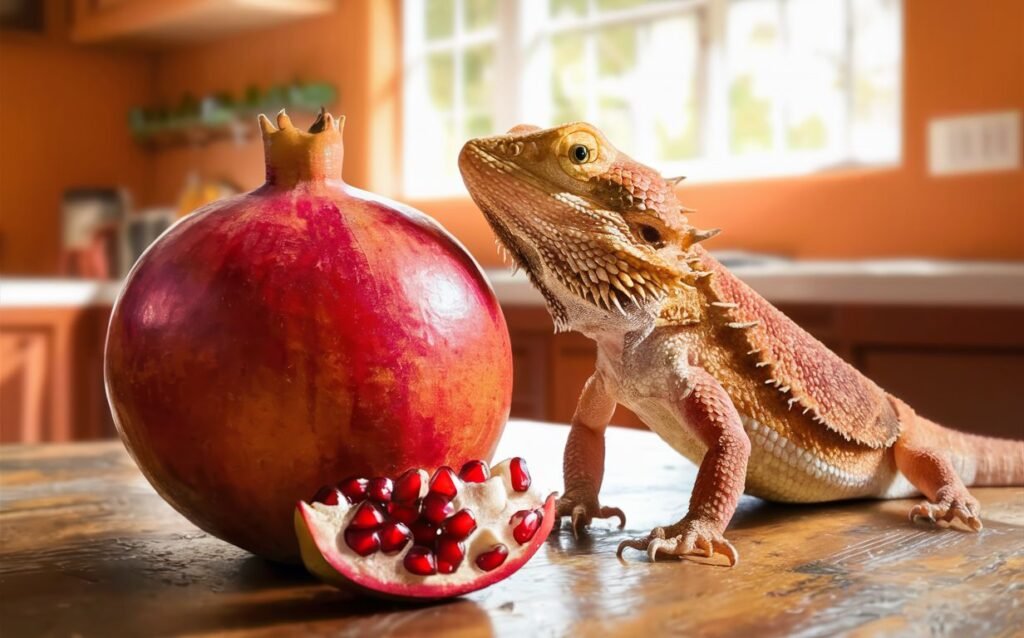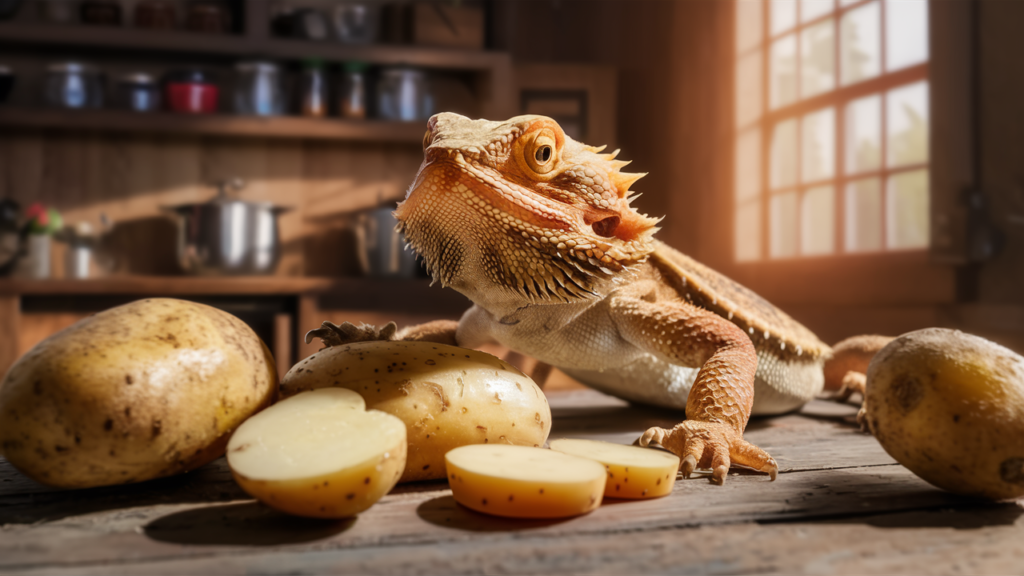Eggs are a common staple in many diets worldwide, appreciated for their nutritional value and versatility. Rich in protein, minerals, and vitamins, they can offer significant health benefits. For bearded dragon owners, the question arises: Can these reptilian pets also enjoy the benefits of eggs? This article explores the suitability of eggs for bearded dragons, considering their nutritional needs and health.
Nutritional Overview
Eggs are a great source of high-quality protein, essential amino acids, vitamin D, vitamin B12, iron, and selenium. These nutrients are crucial for maintaining healthy muscles, bones, and overall physiological functions. However, eggs also contain cholesterol and fat, so they should be offered to bearded dragons in moderation.
Can Bearded Dragons Eat Eggs?
Bearded dragons can eat eggs, but only as an occasional treat. Due to their high protein and fat content, eggs should not constitute a significant part of a bearded dragon’s diet. Offering eggs in small, controlled portions can supplement their regular diet of fruits, vegetables, and insects.
Benefits of Eggs for Bearded Dragons
- Protein: Supports growth and repairs tissue. Essential for young, growing bearded dragons.
- Vitamins: Eggs contain vitamin D and B12, supporting bone health and energy metabolism.
- Minerals: Iron and selenium found in eggs are important for blood health and antioxidant protection.
Given these benefits, incorporating eggs into a bearded dragon’s diet can contribute positively to their nutritional intake when done correctly.
Risks and Considerations
- High Fat Content: Regular egg consumption can lead to obesity in bearded dragons.
- Cholesterol: Like humans, excessive intake can lead to health issues, although bearded dragons are generally less prone to cholesterol problems.
- Portion Size: Too large a portion can disrupt the nutritional balance and cause digestive issues.
How to Safely Prepare Eggs for Your Bearded Dragon
- Cook the egg thoroughly to avoid the risk of salmonella or other bacterial infections. Either boiling or scrambling without any added oils or seasonings is preferred.
- Cool the cooked egg to room temperature before offering it to your bearded dragon.
- Cut a very small piece of the egg (no larger than the space between your bearded dragon’s eyes) to serve as a treat.
- Offer cooked eggs no more than once a month to prevent nutritional imbalances.
Alternatives to Eggs
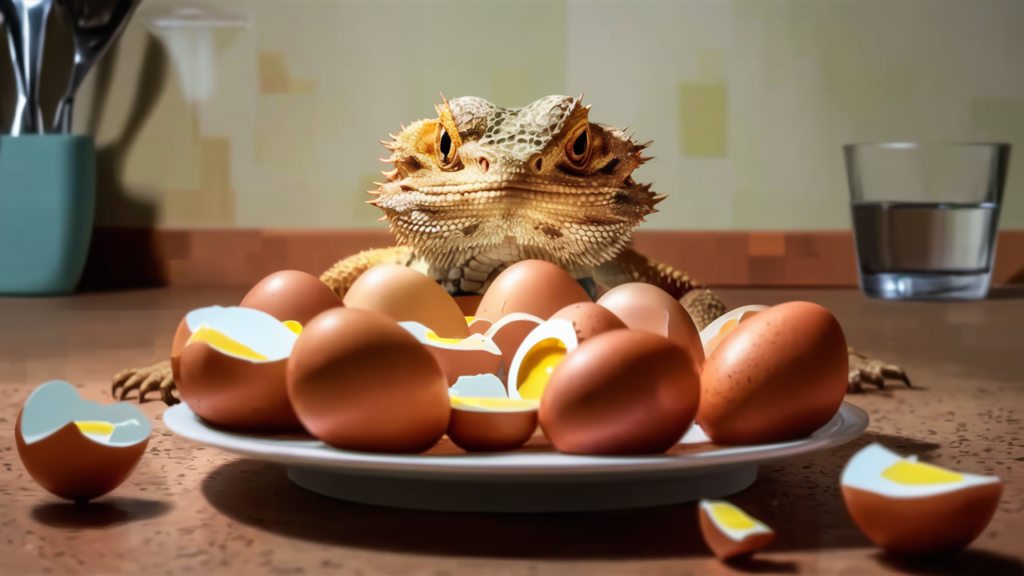
For those looking to diversify their bearded dragon’s protein sources without the risks associated with eggs, consider these alternatives:
- Crickets and Dubia Roaches: These insects are high in protein and are a more natural part of a bearded dragon’s diet.
- Lean Meats: Occasional small portions of cooked chicken or turkey can be offered as a protein alternative.
- Tofu: High in plant-based protein, tofu can be a nutritious occasional treat when offered in small amounts.
These alternatives can provide the necessary protein without the potential drawbacks of feeding eggs too frequently.
FAQs
Q: How often can I feed my bearded dragon eggs?
A: Due to their high fat and protein content, eggs should be fed sparingly, no more than once a month.
Q: Can I feed my bearded dragon raw eggs?
A: No, always cook eggs thoroughly before offering them to your bearded dragon to avoid the risk of bacterial infections.
Conclusion
While eggs can be a nutritious treat offering protein and other essential nutrients, they should only be a minor part of a bearded dragon’s diet due to their high protein and fat content. When offered sparingly and prepared safely, eggs can provide variety and nutritional benefits to your bearded dragon’s diet. Always ensure that the primary diet consists of vegetables, fruits, and appropriate insects to maintain health and well-being.

